YiNGJiE JiN is a talented production designer recognized for her unique ability to create deep narratives through her detailed visual work. With a strong instinct for teamwork and a keen attention to detail, YiNGJiE’s projects go beyond simple visuals, embodying the heart of storytelling in every scene.
Her commitment to building immersive environments has solidified her status as a true artist in the film industry. In this interview, YiNGJiE discusses her thoughts and experiences from her latest project, “I Wish It Were You,” providing a look into the creative process behind her stunning designs.
We express our gratitude to YiNGJiE for taking the time to participate in this interview and for sharing her valuable insights.
IMAGE: PRODUCTION HOUSE 8
1. YiNGJiE JiN, what initially drew you to the project “I Wish It Were You”; and can you describe your role as the Production Designer?
I still vividly remember reading the script for the first time back in 2022. I was immediately captivated by this romantic story. It’s about two young strangers who were engaged by their families and, after years of repeatedly missing each other, eventually fall in love.
The ups and downs of the plot really fascinated me, and I found that many scenes had already formed in my mind. I just couldn’t resist the urge to be part of the production team and turn those visions into reality.
As a production designer, I believe my role is one of the most crucial in any production. From the very early stages, I’m responsible for determining the overall visual tone of the film.
I create a concept lookbook that the producer uses to scout and finalize shooting locations. Once we’ve locked in those locations, I work closely with the director and cinematographer to design the color palette and décor for each scene, ensuring everything aligns with the plot.
I also meticulously craft props to enhance each actor’s character, adding depth and personality to their performances. To me, a production designer is someone who breathes life into the script, gradually transforming it from words on a page into a fully realized world on screen.
IMAGE: PRODUCTION HOUSE 8
2. How did you approach the visual design for “I Wish It Were You” to reflect the story’s themes and characters?
I focus on creating a visual language that would enhance the themes of missed connections and eventual love while reflecting the journey of the characters.
- Color Palette:
I use a muted color palette in the beginning to convey the initial distance and emotional barriers between the characters. As the story progresses, warmer and more vibrant colors are gradually introduced to symbolize the development of their relationship and the warmth of love as they get closer. - Location Choices and Set Design:
I prefer locations that could reflect the emotional states of the characters. For instance, vast, open spaces are chosen to represent their loneliness and missed opportunities, while more intimate, cozy settings are used in scenes where the characters begin to connect on a deeper level. Also, as their relationship grows, the spaces become more personalized, with added details and elements that hinted at their growing bond. - Symbolic Elements and Props:
Props are very important since it could add a lot on characters’ personalities. With a fictional story like this, we need to pursue realism and attention to detail in the props and use symbolic elements, ensuring they can withstand close-ups from the camera and the scrutiny of the audience. I aimed to create an immersive world that not only supports the story but also deepens the audience’s emotional connection with the characters.
IMAGE: PRODUCTION HOUSE 8
3. What were some of the most challenging aspects of designing the sets, and how did you overcome them?
We were among the early filmmakers that started creating series in the vertical format. The entire shoot took 12 days, during which we needed to film 15-20 pages of the script each day. Especially when the camera setup switches to dual-camera mode, I need to manage the visuals for both cameras simultaneously.
This initially made me feel a lot of pressure in the beginning but we soon developed a comfortable workflow together. I also collaborated with other dept. heads to find creative solutions. For instance, if a set element couldn’t be sourced or built efficiently, we would brainstorm alternatives that would still achieve the desired visual effect without compromising the storyline.
Also, due to the fast-paced shooting schedule, we need to pay extra attention to the continuity of the props. During the pre-production, I meticulously compiled a prop list and repeatedly confirmed with the director and clients to ensure each item was the best choice. During filming, I closely collaborated with my assistant, who would prepare the most up-to-date prop list based on each day’s advanced schedule.
For a production of this scale, I believe that learning to organize is crucial t o ensuring the smooth progression of the entire production. We must ensure that everything operates smoothly before we can focus on creative work.
IMAGE: PRODUCTION HOUSE 8
4. Can you share any specific moments or scenes from “I Wish It Were You” that you are particularly proud of in terms of production design?
During the pre-production, we conducted numerous camera tests to gain insights and fully appreciate the unique charm of vertical filming.
One key takeaway is that vertical framing demands greater attention to the design of the upper and lower parts of the space. For example, in the protagonist’s home, I focused heavily on selecting the right carpet—having a large area of color from the carpet can really make the scene feel more complete and visually rich.
Additionally, the design of the foreground and background becomes even more crucial in vertical formats. I frequently collaborated with the director and cinematographer during filming, experimenting with different foreground elements to see how they worked within the frame. This often led to unexpected, magical results.
For instance, in one scene where the male lead returns home after drinking, I placed a small pendant from a crystal chandelier in front of the lens to simulate the male lead’s dizzy state. This technique not only enhanced the scene but also allowed the audience to step into the male lead’s perspective, effectively breaking the fourth wall.
IMAGE: PRODUCTION HOUSE 8
5. How did you collaborate with the director and other departments to ensure the visual elements complemented the storyline and character development?
I engaged in detailed discussions with our director to understand his vision for the story and the characters. We explored the emotional arc of each character and how the visual elements could support and enhance these developments during brainstorm sessions. After a thorough discussion with him, I created a solid look book that outlined the visual style, especially references for colors.
This look book was shared with the director and other key departments, such as costume design and cinematography, to ensure everyone was on the same page: for the costume designer, we need to ensure that our colors of the set dressing do not clash with the costumes, so the characters can stand out visually.
For the cinematographer, it’s important to confirm that they are satisfied with our choice of curtains, and that our selection of practical lighting will enhance their overall lighting design.
IMAGE: PRODUCTION HOUSE 8
6. “I Wish It Were You” has been successful on DramaBox, amassing 6.2 million collective views. And becoming popular on Youtube, Tiktok and other platforms. What feedback have you received about your work on the show from the audience or your peers?
After we finished this show, I had a feeling it might be successful. Our collaboration between department heads was incredibly smooth, and our lead actors had a unique chemistry that really brought the story to life. Looking back, I still feel very fortunate to have been part of the creative team.
However, at the time, I never imagined that the show would become such a phenomenal hit after its release in 2024, receiving 10 million views in just 2 days, almost setting a benchmark for other production companies.
Seeing the response has been incredible—I’ve read comments on YouTube where viewers even mentioned our props, like the bouquet of flowers the male lead gives to the female lead.
Many people said they’d love for their boyfriends to give them a similar bouquet. I’m thrilled that as the drama gained popularity, some of our props became trends. This entire experience has been an amazing and unforgettable journey, and it’s really boosted my confidence.
IMAGE: PRODUCTION HOUSE 8
7. What did you learn from working on this project that you will carry forward into your future projects?
Since this is an entertainment piece for the public, I believe that our enthusiasm during production directly resonates with the audience—they can feel our joy.
That’s why, even when working under the pressure of a fast-paced shooting schedule, maintaining a positive and adaptable attitude is absolutely crucial. The nature of film production often demands quick decisions and the ability to pivot when unexpected challenges arise.
By staying flexible and keeping the mood on set upbeat, we not only make the experience more enjoyable for everyone involved but also keep the creative energy alive. Ultimately, this approach ensures that the project we deliver is not only polished and professional but also resonant and relatable, making a genuine connection with viewers that goes beyond just entertainment.
IMAGE: PRODUCTION HOUSE 8
If you are interested in even more entertainment-related articles and information from us here at Bit Rebels, then we have a lot to choose from.
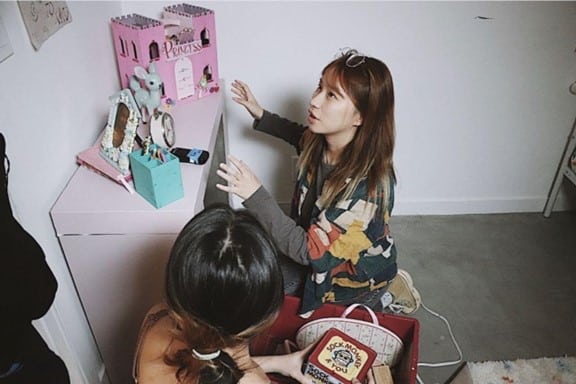
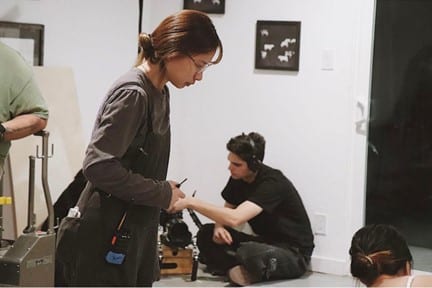
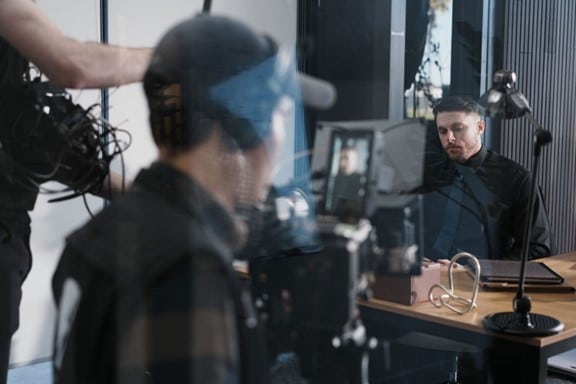
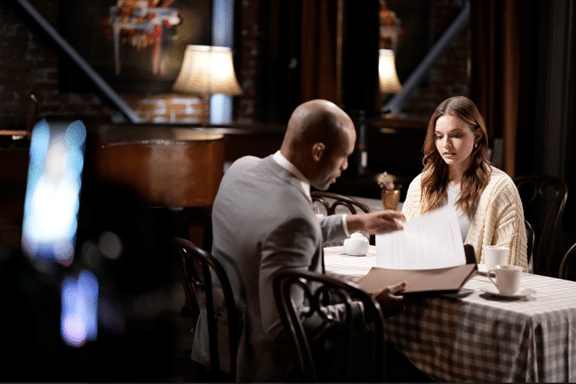
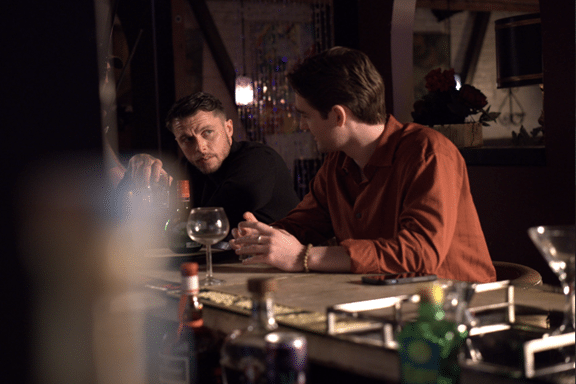
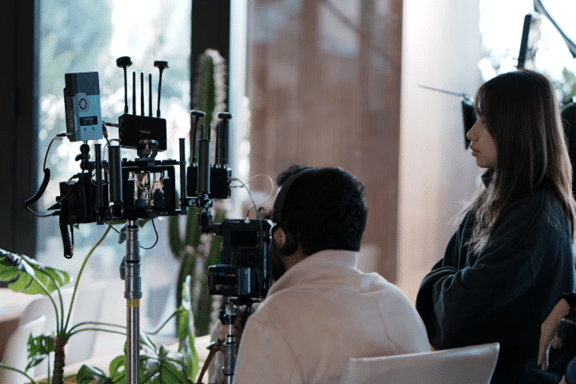
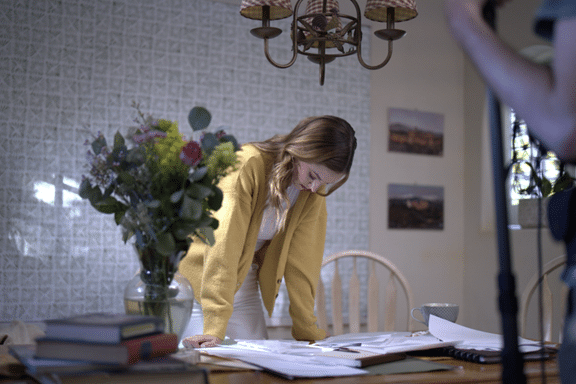
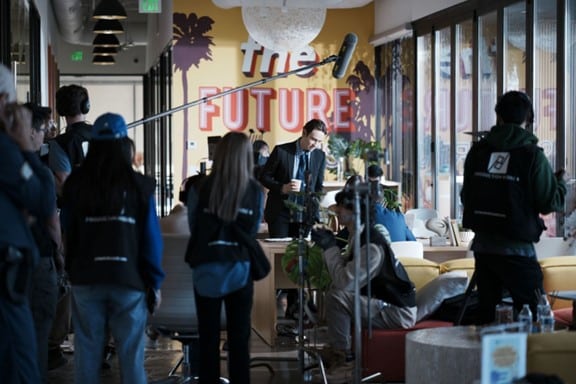
COMMENTS